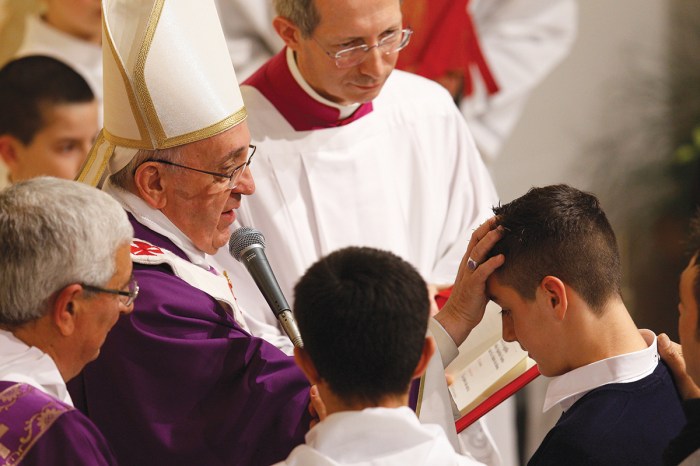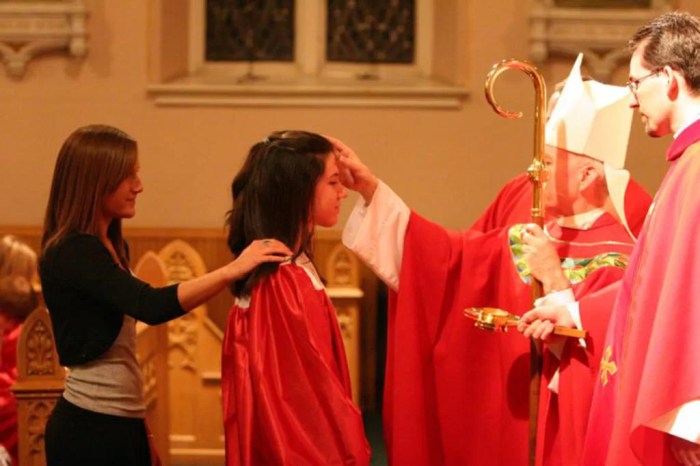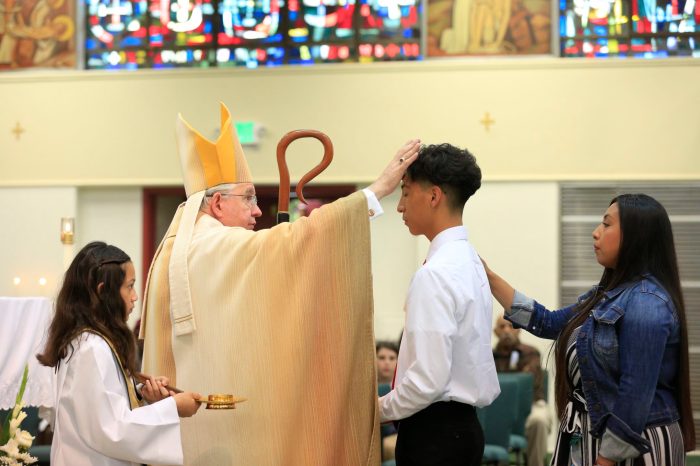The Roman Catholic Rite of Confirmation, a sacrament of initiation, is a transformative experience that empowers believers with the Holy Spirit, strengthening their faith and equipping them for a life of Christian discipleship. Through the laying on of hands, anointing with chrism, and the invocation of the Holy Spirit, this ancient rite marks a profound moment in the spiritual journey of Catholics.
The symbolism and effects of the Rite of Confirmation are multifaceted, reflecting the profound transformation that takes place within the recipient. It signifies the strengthening of baptismal graces, the sealing of the Holy Spirit, and the bestowal of the gifts of the Spirit.
Confirmation plays a pivotal role in the life of the Church, empowering individuals to live out their baptismal call, witness to their faith, and participate actively in the mission of the Church.
History of the Roman Catholic Rite of Confirmation

The Roman Catholic Rite of Confirmation is a sacrament that traces its origins to the early days of the Church. The first mention of confirmation can be found in the Acts of the Apostles, where it is described as a laying on of hands by the apostles that imparted the Holy Spirit upon newly baptized believers.
Over time, the rite developed into a more formal ceremony, and by the 4th century, it was recognized as a distinct sacrament. The rite has continued to evolve over the centuries, with the most significant changes occurring in the 12th and 13th centuries.
Symbolism of the Roman Catholic Rite of Confirmation
The Roman Catholic Rite of Confirmation is rich in symbolism. The laying on of hands represents the transmission of the Holy Spirit, while the anointing with chrism signifies the recipient’s sealing as a member of the Church. The words spoken during the rite, “Be sealed with the gift of the Holy Spirit,” express the belief that confirmation strengthens the recipient’s faith and empowers them to live as a Christian witness.
Effects of the Roman Catholic Rite of Confirmation
Confirmation has a profound effect on the recipient. It strengthens their faith, deepens their relationship with God, and empowers them to live as a Christian witness. Confirmation also plays an important role in the life of the Church, as it helps to build up the Body of Christ and strengthen the bonds of unity among its members.
Preparation for the Roman Catholic Rite of Confirmation
Preparation for confirmation typically begins several months before the ceremony. During this time, candidates are instructed in the faith and encouraged to develop a deeper relationship with God. They are also assigned a sponsor who helps them to prepare for the sacrament and provides support throughout their journey of faith.
Celebration of the Roman Catholic Rite of Confirmation
The Roman Catholic Rite of Confirmation is typically celebrated during a Mass. The bishop or priest presiding over the Mass lays hands on the candidates and anoints them with chrism. The candidates then make a profession of faith and receive a blessing from the bishop or priest.
Controversies Surrounding the Roman Catholic Rite of Confirmation
There have been some controversies surrounding the Roman Catholic Rite of Confirmation, particularly over the age at which it should be celebrated. Some argue that confirmation should be delayed until the candidate is older and more mature, while others believe that it should be celebrated as soon as possible after baptism.
The Church has addressed this controversy by setting a minimum age for confirmation, but it allows for flexibility in determining the appropriate age for each individual candidate.
Questions and Answers: Roman Catholic Rite Of Confirmation
What is the age requirement for Confirmation?
The age for Confirmation varies depending on the diocese and the individual’s readiness. Typically, it is administered to youth between the ages of 12 and 16.
Who can be a Confirmation sponsor?
A Confirmation sponsor must be a practicing Catholic who has received the sacraments of Baptism, Confirmation, and Eucharist. They serve as a guide and support to the candidate throughout the preparation and celebration of the sacrament.
What is the significance of the chrism used in Confirmation?
The chrism, a fragrant oil consecrated by the bishop, symbolizes the sealing of the Holy Spirit and the strengthening of the baptismal graces received at Baptism.


